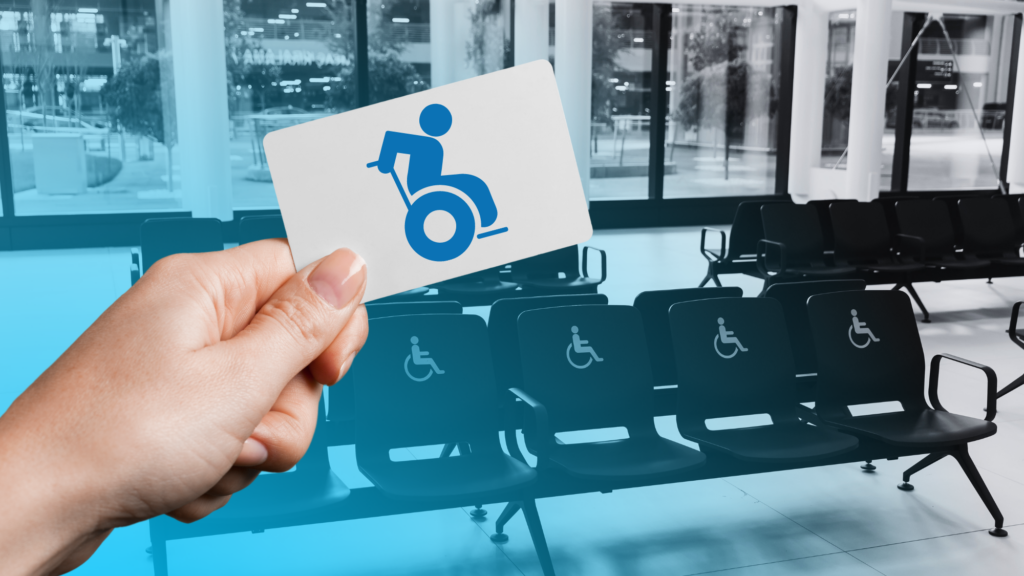
CDN DIGITAL FILE PHOTO 2024
CEBU CITY, Philippines – How can a person with disability (PWD) obtain an identification card?
Following the alleged corruption involving the unauthorized printing and selling of PWD IDs ranging from P2,000 to P4,000 to able-bodied individuals at Cebu City Hall, several concerns have arisen, particularly regarding the integrity and security of the application process for obtaining a PWD ID.
City Councilor James Cuenco disclosed the names of the employees allegedly involved in the scheme during the council’s regular session on May 22 and planned to summon them for an executive session on June 6.
The scandal has raised serious questions about the ease with which these identification cards can be accessed and the potential for exploitation within the system.
READ:
Cebu City hall faces corruption allegations on unauthorized printing, selling of PWD cards
Gov’t readies new discount guidelines for seniors, PWDs
DSWD cash-for-work program benefits 32,000 PWDs in Central Visayas
Is the current application process too easy and insufficiently secure to prevent breaches and unauthorized replication?
Let us examine the process to obtain a PWD ID in Cebu City.
How to obtain a PWD ID
According to the Department of Social Welfare and Services (DSWS), where the PWD unit is situated, the process includes the following steps:
Document Submission
Applicants must prepare the required documents. These typically include proof of identity, such as a valid government-issued ID or birth certificate, and proof of residency, such as a barangay certificate or utility bill.
Additionally, a medical certificate or assessment from a licensed physician or government hospital indicating the applicant’s disability and its severity is necessary.
Applicants must also provide two to three recent passport-size photos with their signatures or thumb marks on the back.
Finally, a completed PWD ID application form, which is available from authorized sources such as the National Council on Disability Affairs, the Department of Social Welfare and Development, or the Department of Health website, is required.
Photograph Provision
Applicants are required to provide photographs, including full-body pictures, to document their disabilities.
In-Person Interview
An in-person interview is conducted with applicants who are physically able to visit the DSWS office. This step ensures that the information provided is accurate and that the applicant is genuinely eligible for a PWD ID.
What are the PWD benefits
Despite these steps, the allure of the benefits associated with a PWD ID has unfortunately led to exploitation by able-bodied individuals.
PWD IDs offer substantial discounts on essential goods and services, such as medications, groceries, and public transportation.
Discounts on Goods
Last March, the Department of Trade and Industry (DTI) held a series of online consultations regarding the planned increase in discounts on basic necessities and prime commodities (BNPCs) for senior citizens and persons with disabilities (PWDs).
Under review is the DTI’s joint administrative order with the Department of Agriculture (DA) and the Department of Energy, which proposes raising the discount ceiling for BNPCs to P125 per week from the current P65.
Senior citizens and PWDs are entitled to a special 5-percent discount on the regular retail price of basic necessities, without exemption from the value-added tax, as outlined in DTI-DA Administrative Order No. 10-02.
READ:
Ensure seniors/PWDs are aware of new benefits
These discounts cover essential goods and prime commodities that senior citizens and PWDs consume daily. This includes rice, corn, bread, meat, fish, chicken, eggs, cooking oil, sugar, vegetables, fruits, onions, and garlic, as well as fresh and processed milk, excluding medical-grade milk.
Also included are canned fish and other marine products, coffee, bottled water, laundry soap, detergent, candles, and salt.
Additionally, the list of prime commodities includes dried pork, dried beef, poultry meat, fresh dairy products, onions, and garlic, among others. Manufactured goods, such as processed meat, sardines, and corned beef (excluding premium brands), are also eligible for the discount.
Discount on Public Transportation
According to Section 32, Chapter 8, Other Privileges and Incentives, Republic Act No. 9442, which amends Republic Act No. 7277 (the “Magna Carta for Persons With Disabilities”), PWDs are entitled to at least a 20% discount on public railways, skyways, and bus fare for their exclusive use.
For example, if the regular fare for a 5-kilometer jeepney ride is P8.00, PWDs should only pay P6.40 after the discount.
Other Privileges and Incentives for PWDs
PWDs are entitled to a 20% discount on all services in hotels and similar lodging establishments, restaurants, and recreation centers.
They also receive a minimum 20% discount on admission fees to theaters, cinemas, concert halls, circuses, carnivals, and other similar places of culture, leisure, and amusement.
Additionally, there is at least a 20% discount on the purchase of medicines in all drugstores, and on medical and dental services, including diagnostic and laboratory fees and professional fees of attending doctors in all private hospitals and medical facilities.
PWDs also benefit from at least a 20% discount on fares for domestic air and sea travel.
Educational assistance is provided to PWDs to pursue primary, secondary, tertiary, post-tertiary, vocational, or technical education in public and private schools through scholarship grants, financial aids, subsidies, and other incentives such as books, learning materials, and uniform allowances (DEPED).
They also continue to receive benefits from GSIS, SSS, and PAG-IBIG (if previously employed), as necessary.
Special programs offer a 5% discount on the purchase of basic commodities, with guidelines from DTI and DA. PWDs also benefit from express lanes in all commercial and government establishments.